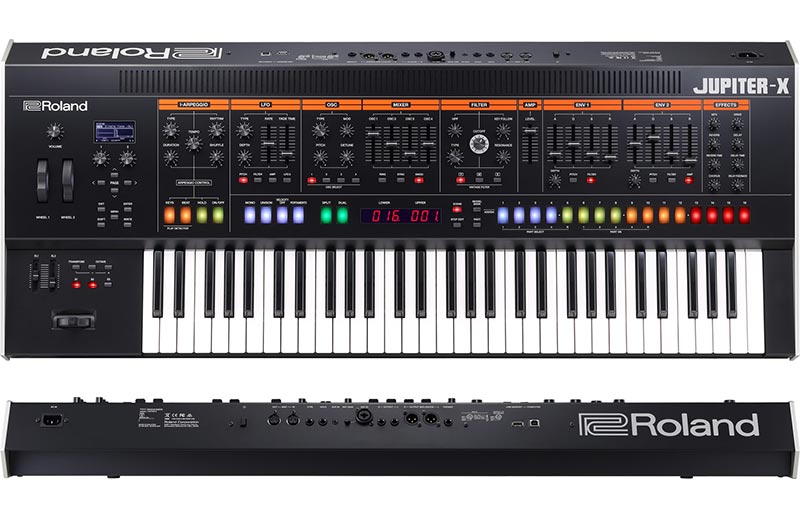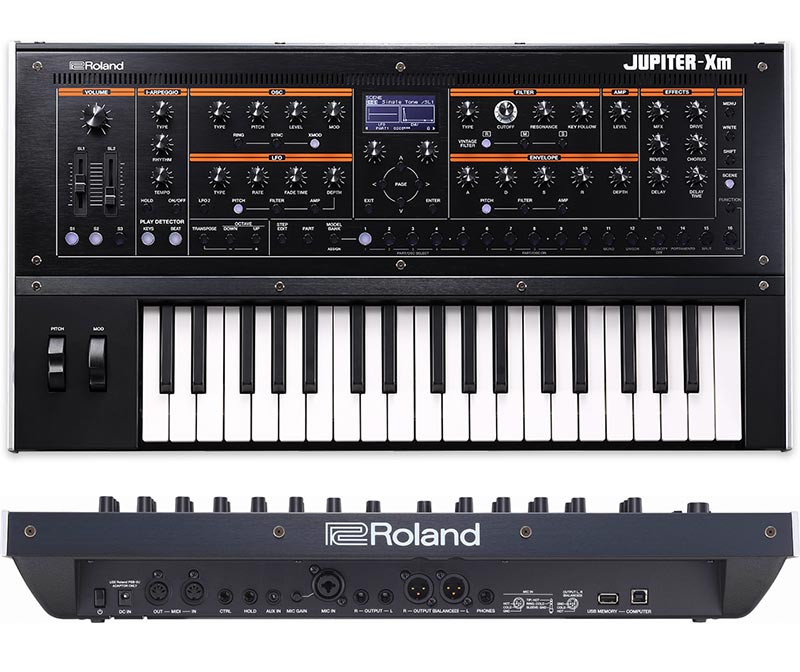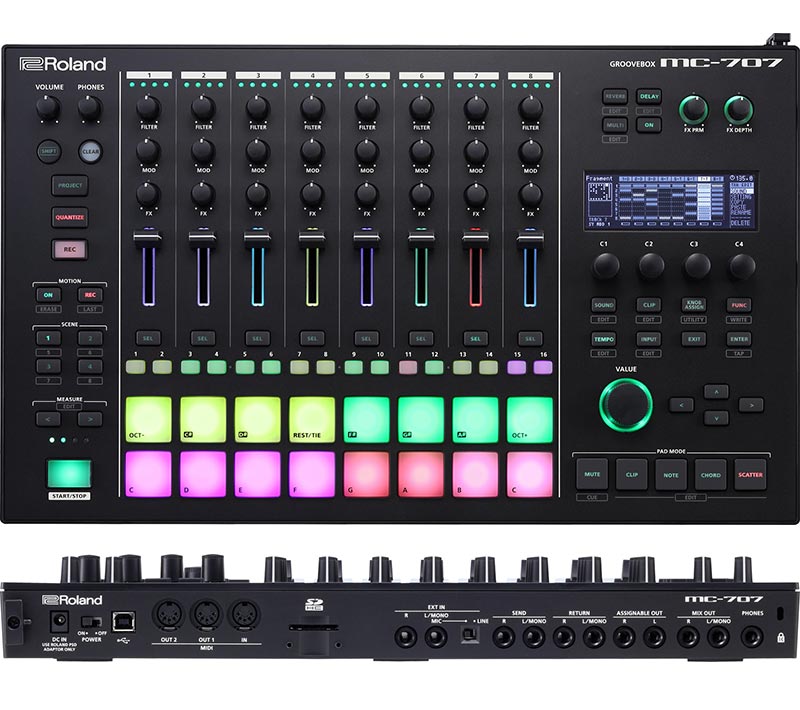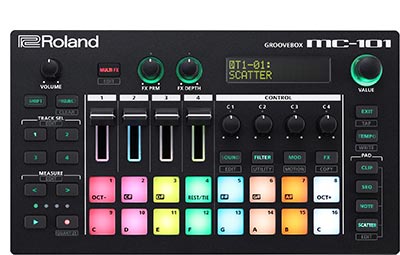Roland has announced several new synth retreads of their glory days based on their Analog Circuit Behavior sound modeling technology. While other manufacturers and synth developers are all employing analog or hybrid systems, Roland continues to put all their money on ACB and its derivatives, the latest incarnation dubbed Zen-Core for their new digital Jupiter-X keyboard. While it’s great that Roland is finally cashing in on their legacy, as opposed to other manufacturers, it’s tough to get truly excited about yet another Boutique or workstation reboot. To that effect, Roland also premiered two new groove boxes. In today’s world of successful computer and controller ecosystems, many have shrugged their shoulders and simply asked: Why? We don’t know either, but let’s take a look.

Here’s what Roland says: “Jupiter-X’s next-generation sound engine lets users tap into Roland’s long history of genre-defining sounds and morph them together to explore unmapped sonic territory. Sought-after analog classics like the JUPITER-8, JUNO-106, SH-101, and more are authentically reproduced, as well as digital machines like the vintage XV-5080 and modern RD pianos. Also available are Roland drum machine sounds that form the foundation of electronic and dance music, including the TR-808, TR-909, TR-707, CR-78, and others.”
Again, not something you’re going to jump up and dot down on your Christmas list, especially at the $3250 asking price. Yes, you read that correctly. Three thousand, two hundred and fifty dollars. However, they have added a new arpeggio, called I-Arpeggio, which they claim is based on artificial intelligence. I-Arpeggio takes player-created notes, rhythms, and phrases and uses them to develop complementary drum parts, basslines, chords, and arpeggiated lines in real time. It works on each of JUPITER-X’s five parts simultaneously, and generated patterns can be customized and even exported to a digital audio workstation. Sounds a lot like what other software companies are doing.

The Jupiter-X can’t even champion polyphony, since its sound structure only includes five parts, four for synths and one for drums. Jupiter-X is available in two formats: the Jupiter-X model featuring a full-size control layout and a 61-note keyboard and the Jupiter-Xm model with a 37-note slim keyboard and compact chassis. Both look attractive, in the Jupiter aesthetic, with metal sidewalls.
The Roland Boutique JU-06A Synthesizer combines the sounds and function from their Juno-6, Juno-60 and Juno-106 into a ACB unit. It comes with a recreation of the unit’s swirling chorus, but adds an improved sequencer, interface, trigger in, arpeggiator and modern connectivity. It certainly is a viable recreation, but suffers the same fate as their Boutique TB-03, namely no analog “grease.” Let’s move on.

The Mama Bear and Baby Bear format continues with the MC-101 and the MC-707 grooveboxes. Roland sold a boatload of MC-303’s when they first came out with users being duped that they were getting some sort of TB-303, but they quickly faded when users realized the sound was thin, the workflow was a chore and the results were strictly bush-league. Hard to get excited over a very expensive Groove Box when one can score Native Instruments’ excellent Maschine Mk3 for half the price.

While the MC-707 doesn’t need a computer like Maschine, and contains 3000 built-in sounds and 80 drum kits, you are limited to the groovebox format. Unlike the MC-303, Roland, to their credit, has completely updated the format to allow users to incorporate their own sounds and samples, via a SD card. It contains modern algorithms for time-stretching and pitch shifting and includes 90 types of effects and processing. Like Ableton, the workflow is clip-based and contains eight tracks of sequencing (64 steps per sequence).
The battery-powered MC-101 is for tweaking on the go. With many of the same sounds and effects of the MC-707, the 101 has a small footprint and only a four track sequencer. It’s a better “buy” compared to the 707, but again at $650, that’s a lot of coin.
Roland’s Pricing: Jupiter-Xm: $1950 – Roland Boutique JU-06A: $520 – Roland MC-707: $1300 – Roland MC-101: $650. No official availability has been announced.






